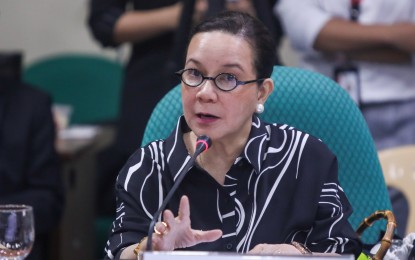
Senator Grace Poe (File photo)
MANILA – Senator Grace Poe has filed a bill seeking to grant a franchise to Starlink Internet Services Philippines Inc. and allow it to provide satellite-based internet services, particularly in remote areas.
In a new release on Wednesday, Poe said she believes Starlink can address the digital gap in the country by using its extensive satellite constellation, which currently consists of over 6,200 active satellites.
"Starlink is seen to bridge the digital gap by providing satellite-based internet connectivity in areas not covered by traditional terrestrial networks and in remote areas where it is difficult to build telecommunications infrastructure," Poe said
"The use of satellite technology is particularly well-suited in an archipelago like the Philippines, where large portions of the population live in rural areas and isolated islands."
Starlink Philippines has been granted accreditation as a Satellite Systems Provider and/or Operator by the Department of Information and Communications Technology (DICT), and registered as a Value-Added Service provider by the National Telecommunications Commission (NTC).
While already allowed to provide internet services in the country, Poe said a legislative franchise will allow the company to build, maintain and operate gateway earth stations for the provision of broadband internet services.
Republic Act No. 3846 or the Radio Control Act states that gateway earth stations qualify as "radio stations" which require legislative franchise.
Under Senate Bill No. 2844 filed on Tuesday, Starlink will be authorized to connect or demand connection of its telecommunications systems to other telecommunications systems installed, operated and maintained by any other duly authorized person entity in the Philippines.
The measure mandates it to improve and extend its services in unserved and underserved areas, geographically isolated and disadvantaged areas, and in hazard and typhoon areas as determined by the National Disaster Risk Reduction and Management Council.
"The harsh reality of internet service in the country is reflected in the most recent national census which found that only 56.1 percent of Filipino households can access the internet at home while 42.1 percent can access it via mobile broadband networks," Poe said.
"Poor internet access limits the opportunities available to Filipinos, particularly for low-income households. The entry of a new player brings bright prospects in our telecommunications industry," she added. (PNA)
